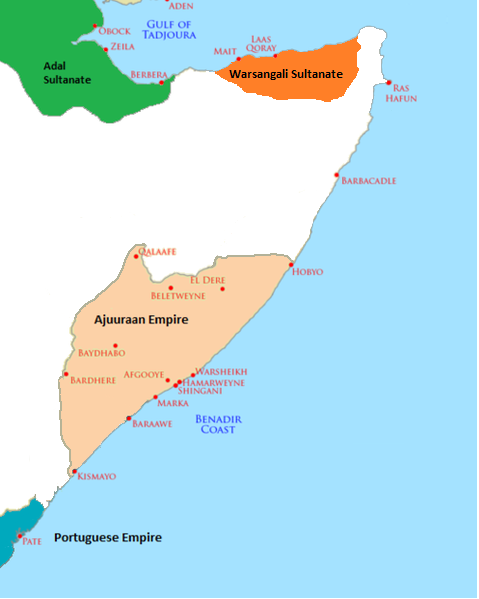Shiraz has connections to the Sassanians and was the capital of Fars province in Iran after the Islamic conquest. In the early 13th century, Yakut regarded Mog as the frontier between Barbar and Zanj and it seems that the Swahili culture moved south from there. Contrary to claims made on Sspot in the past, Arabs and Shirazis converted the Comoros to Islam and established the gold trade at Sofala. The kings of Kilwa were a Shirazi royal house that gives the group it's name. Many of these immigrants arrived through Mog, but they were not ethnic Somalis. Those who stayed in Mog became Cadcads, etc.
https://www.jstor.org/stable/180168?read-now=1&refreqid=excelsior:ebe58018cdf8c365ad122f4cafa14535&seq=11#page_scan_tab_contents


The old buildings in Mog are Shirazi, Yemeni and Omani. Ethnic Somalis don't get access to Mog after dark until the Yaquub Abgaal kill the Muddaffar governor about 1624. Yemen/Oman/Zanzibar continue to control the port when their ships are in, and Zanzibar sells out to the Italians. Ethnic Somalis only get control of the port after independence in 1960.
http://www.wernerhermans.com/downloads/Ancient Arab settlements of the Swahili Coast.pdf

https://www.jstor.org/stable/180168?read-now=1&refreqid=excelsior:ebe58018cdf8c365ad122f4cafa14535&seq=11#page_scan_tab_contents


The old buildings in Mog are Shirazi, Yemeni and Omani. Ethnic Somalis don't get access to Mog after dark until the Yaquub Abgaal kill the Muddaffar governor about 1624. Yemen/Oman/Zanzibar continue to control the port when their ships are in, and Zanzibar sells out to the Italians. Ethnic Somalis only get control of the port after independence in 1960.
http://www.wernerhermans.com/downloads/Ancient Arab settlements of the Swahili Coast.pdf




